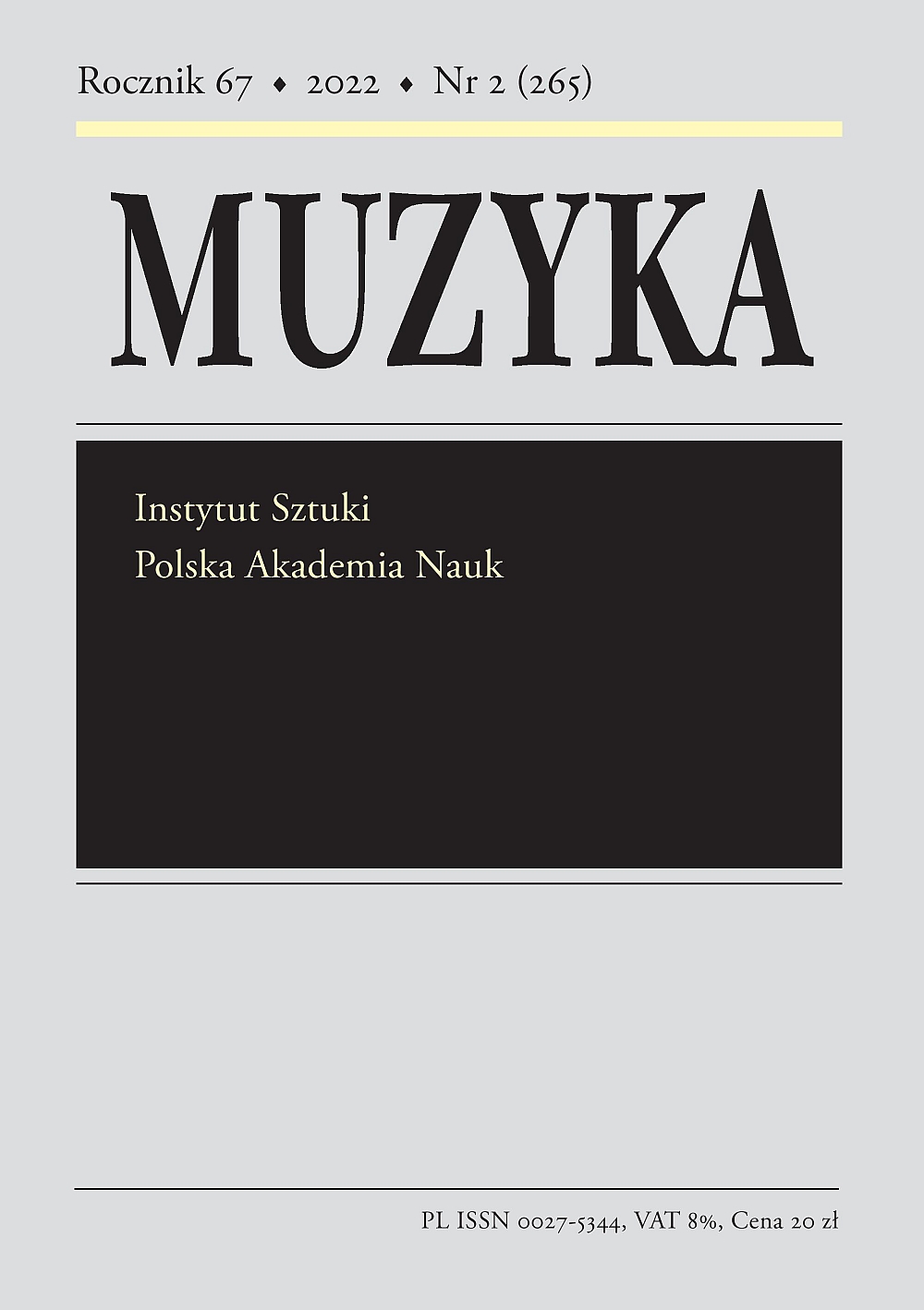Muzycy i muzyka w kręgu rodziny Węsławskich w Wilnie
Music and Musicians Associated with the Węsławski Family in Vilnius
Author(s): Michał PiekarskiSubject(s): Cultural history, Music, Recent History (1900 till today)
Published by: Instytut Sztuki Polskiej Akademii Nauk
Keywords: Vilnius; Witold Węsławski; Stanisław Węsławski; Karol Szymanowski; Ludomir Różycki; Tedeusz Szeligowski; salon
Summary/Abstract: For more than half a century, up to 1939, the Węsławski family’s home in Vilnius was a place of unique importance to the city, one of the Second Polish Republic’s most important private music salons, where works by Young Poland composers were frequently performed. The address was also associated with earlier musical traditions initiated by Stanisław Moniuszko, and for a hundred years (1840–1940) those traditions constituted the “genius loci” of that tenement house in Vilnius.Both the physician Witold Węsławski and his son, the lawyer Stanisław Węsławski, pursued an interest in music. The latter was also a well-known Vilnius columnist, composer and organiser of musical life. The salon that he ran with his wife Ada (née Hryszkiewicz) was a meeting place for the elite of the Vilnius interwar musical and artistic world, which included Witold Hulewicz, Tadeusz Szeligowski and Ludomir Sleńdziński. Special guests included Karol Szymanowski. Three books of music from the Węsławski family collection have been preserved to our times, including two collections of Polish music from the late nineteenth and early twentieth century. The works by Karol Szymanowski and Ludomir Różycki which they contain prove that, despite the provincial character of this city, on the periphery of Poland at that time, Vilnius kept a close eye on the latest achievements of Polish composers, both before 1918 and afterwards (when the university was restored). Whether the Węsławski salon was a notable exception in this respect is hard to judge from today’s perspective. What is certain is that interest in contemporary Polish music was passed down in that family from one generation to the next. Since the Węsławskis’ home was open to many representatives of the Polish interwar elite in Vilnius, besides the household members, numerous guests also had the chance to hear works that were rarely or never performed in public. For this reason, the Węsławski family home was much more than a mere conventional salon.
Journal: Muzyka
- Issue Year: 67/2022
- Issue No: 2
- Page Range: 63-90
- Page Count: 30
- Language: Polish

